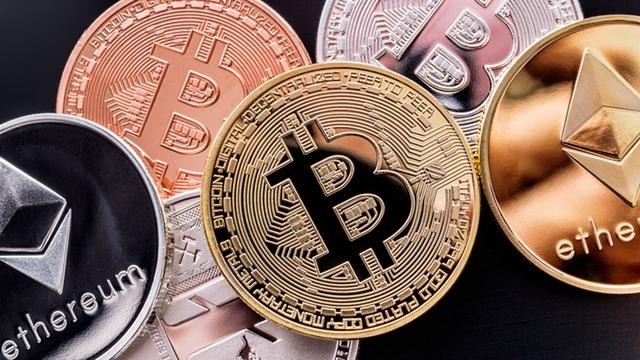Advertising
Nigeria and Ghana are racing to adopt a central bank digital currency as they look to ride the wave of popularity of cryptocurrencies in West Africa's two largest economies.
Central banks in both countries have partnered with foreign financial tech companies to create digital versions of their currencies, joining the global train of countries exploring the initiative.
Nigeria, Africa's largest economy, will launch its eNaira digital currency on October 1, while Ghana will trial e-Cedi from this month.
Nigeria has seen a boom of cryptocurrencies, despite a ban on banks making the transactions, as people look for ways to escape the weakening naira currency and offset high cost of living and unemployment in Africa's most populous country.
"Nigerians are investing in cryptocurrency as a means of store value and to carry their funds outside the shores of the country," said Ayodeji Ebo, head of retail investment at Lagos-based investment firm Chapel Hill Denham.
"eNaira will be for transactionary purposes."
Central banks across the world are exploring ways to create virtual money as legal tender following the growth in digital payments, cryptocurrency and privately issued stablecoins.
Both so-called central bank-backed CBDCs and cryptocurrency are virtual money: CBDCs are issued and regulated by the central bank while the other is out of government control.

China became the first major economy to pilot a digital currency last year. Since then, five countries have launched digitised currencies, according to a CBDC tracker by American think-tank Atlantic Council.
Although some African countries such as Kenya, South Africa and Rwanda are exploring CBDCs, Nigeria and Ghana have already reached advanced stages.
- Step by step -
The Bank of Ghana is partnering with German firm Giesecke+Devrient (G+D) to pilot the e-Cedi. The scheme is part of a broader plan to digitise the country and its government.
G+D will provide the technology that will be tested in a trial phase with local banks, payment service providers, consumers and others.
Nigeria selected global financial technology company Bitt Inc. for its CBDC launch known as "Project Giant" after more than three years of research into the digital currency.
"The CBN will rely on the company's tested and proven digital currency experience, which is already in circulation in several eastern Caribbean countries," the Central Bank of Nigeria said.
The new eNaira will be issued by the CBN as legal tender like the current naira currency and will operate on the Hyperledger Fabric Blockchain. It will also follow the official exchange rate.
Starting from October 1, customers will be able to download the eNaira app and fund their mobile wallets using their existing bank accounts, according to CBN governor Godwin Emefiele.
- Boom and concerns -
Nigeria's central bank has long worried about the impact of cryptocurrencies and stablecoins that are fast becoming popular among young and tech-savvy residents.
Young Nigerians continue to explore new ways to make money and store value in the face of double-digit joblessness and inflation as well as the collapse in value of the local naira.
Nigeria's central bank earlier this year ordered lenders to stop facilitating cryptocurrency transactions over allegations they were being used for money laundering and terrorism financing.
In spite of the central bank ban, many Nigerians still skirt traditional sectors to use cryptocurrency for overseas transactions.
Emefiele says eNaira will benefit Nigeria's economy in many ways, from cross-border trade to making remittance inflows more efficient.
Remittances fell to $17.2 billion last year, the lowest level since 2007.
Some of that was due to Covid-19 pandemic fallout, but observers say Nigerians abroad are moving away from official channels to cryptocurrency transactions seen as faster and more efficient.
Nigeria climbed two steps this year to rank sixth globally in crypto adoption, according to blockchain data platform Chainalysis.
Already, some analysts question the eNaira's operating model with Nigeria already using a host of existing electronic payment channels, including internet banking and mobile apps.
"Digital currency is heavily dependent on smart devices," said Joel Ogunsola, CEO of UK-based technology solutions company Prunedge.
"If you look at the number of people who have these devices in Nigeria, it almost looks like you are gunning for the same market."
But the chief economist for Nigeria at PwC, Andrew Nevin, said the eNaira comes with the benefit of easier and lower transaction costs.
"The eNaira helps to reduce the cost of payment," Nevin said. "That's the point of deploying a larger technology, which is the basis for the central bank digital currency."
© 2021 AFP




